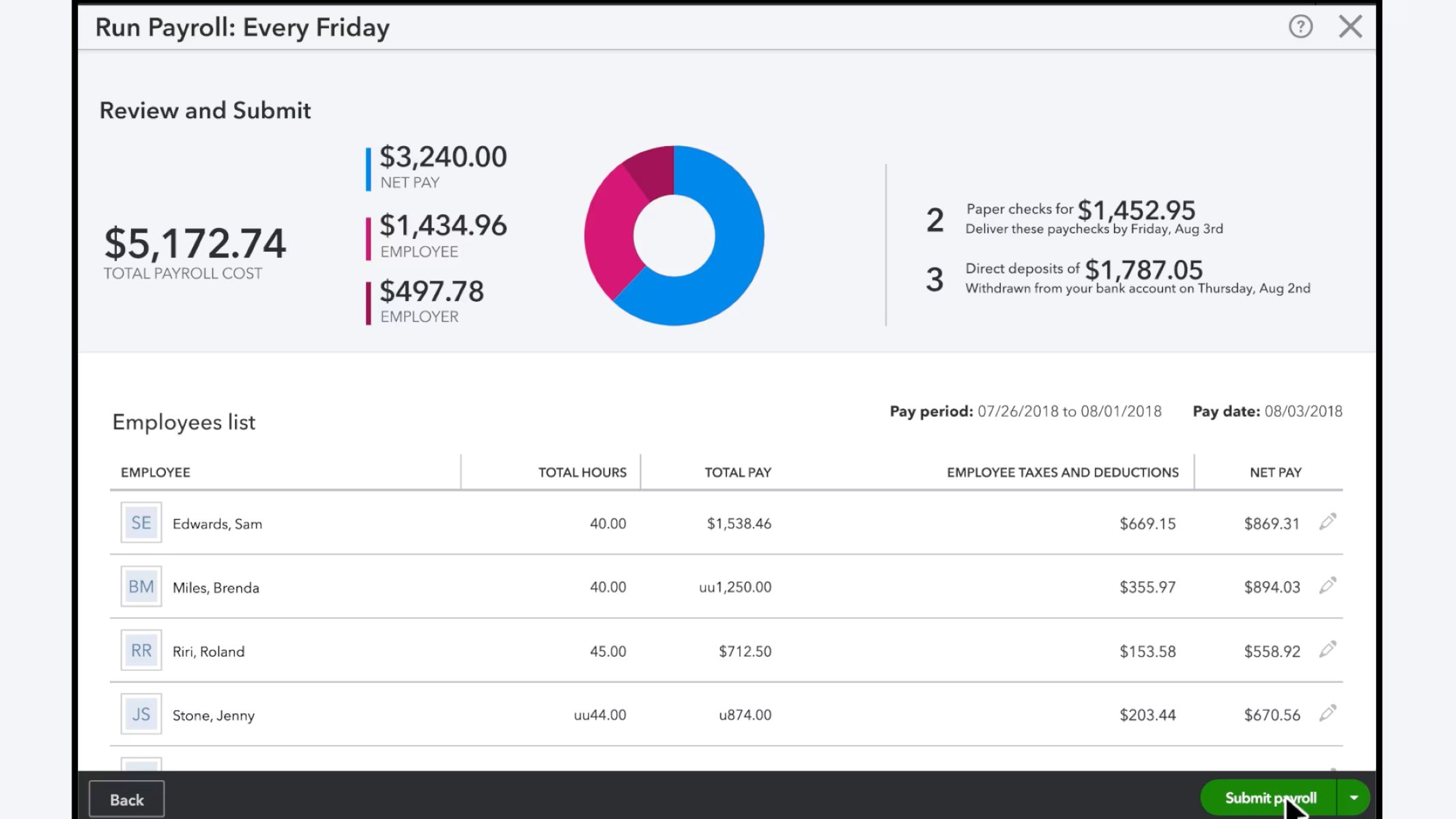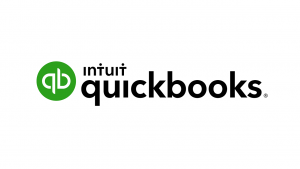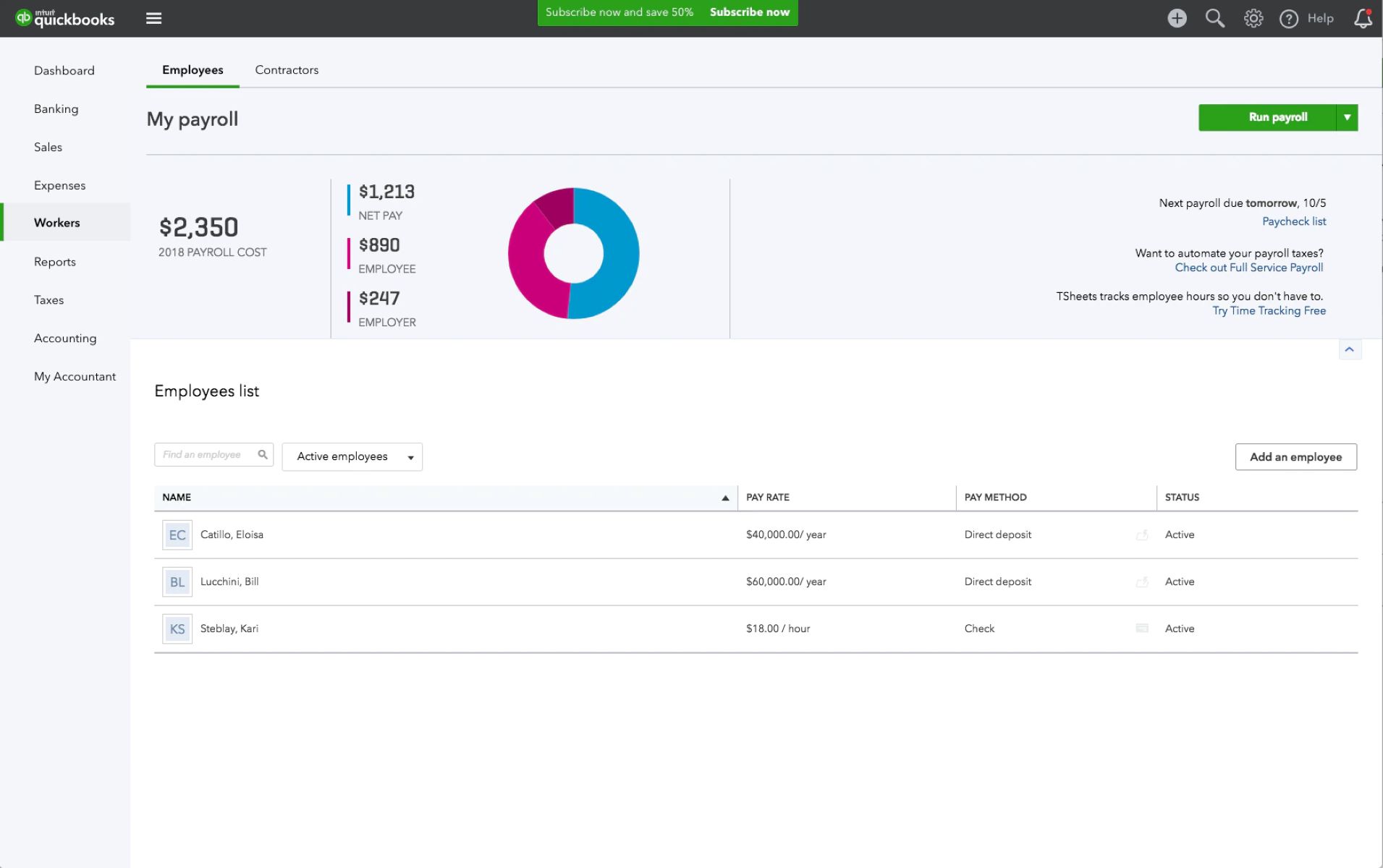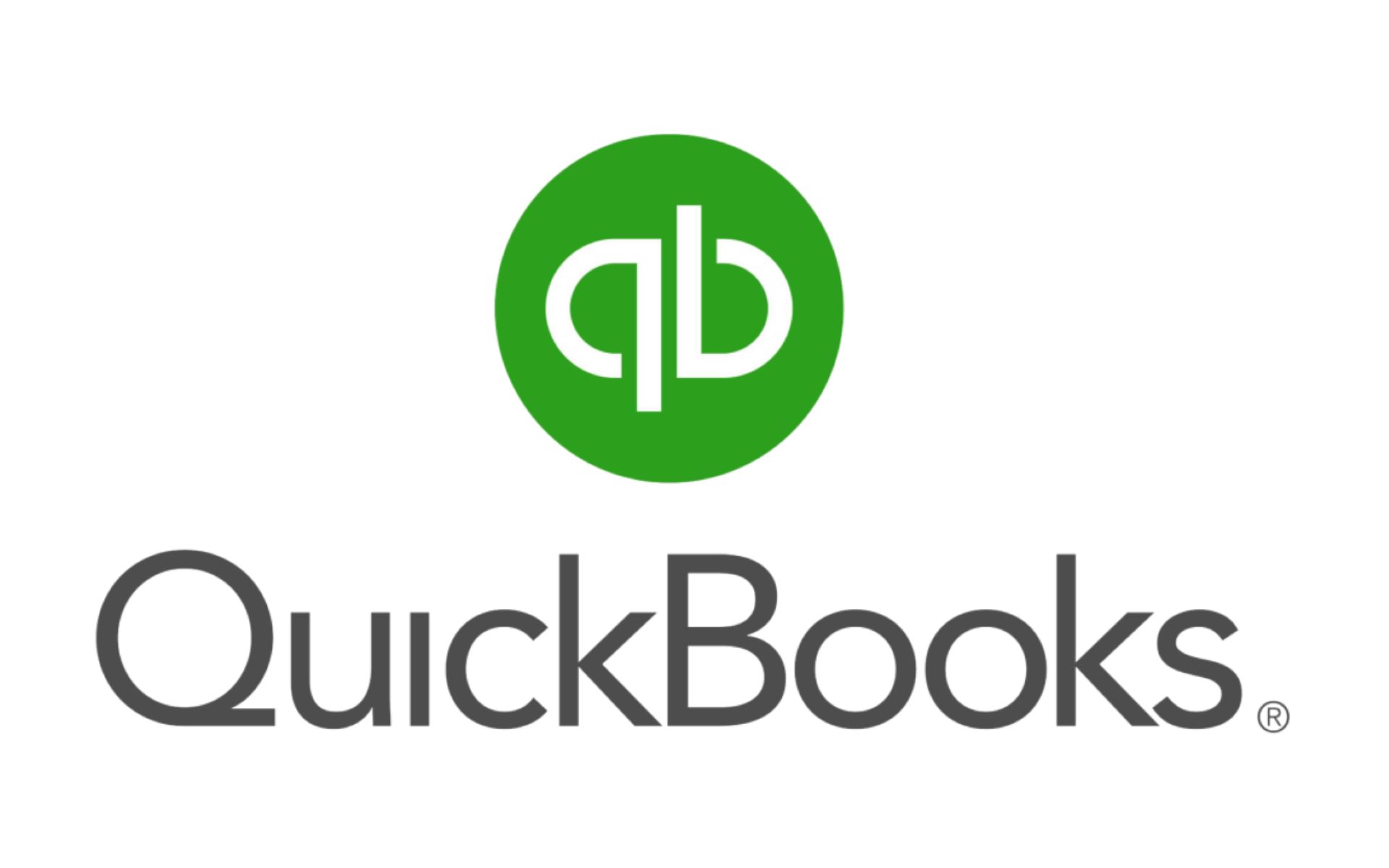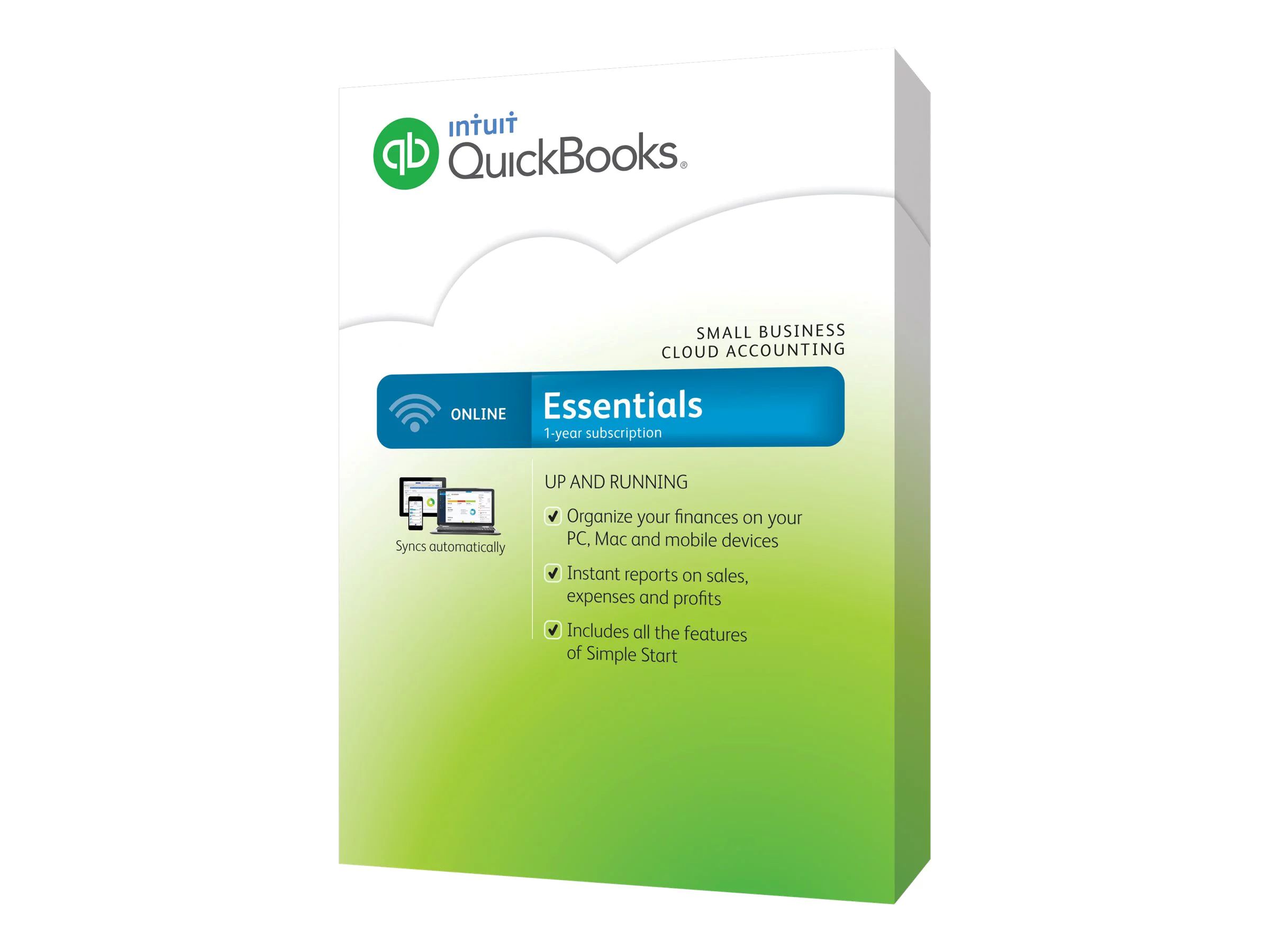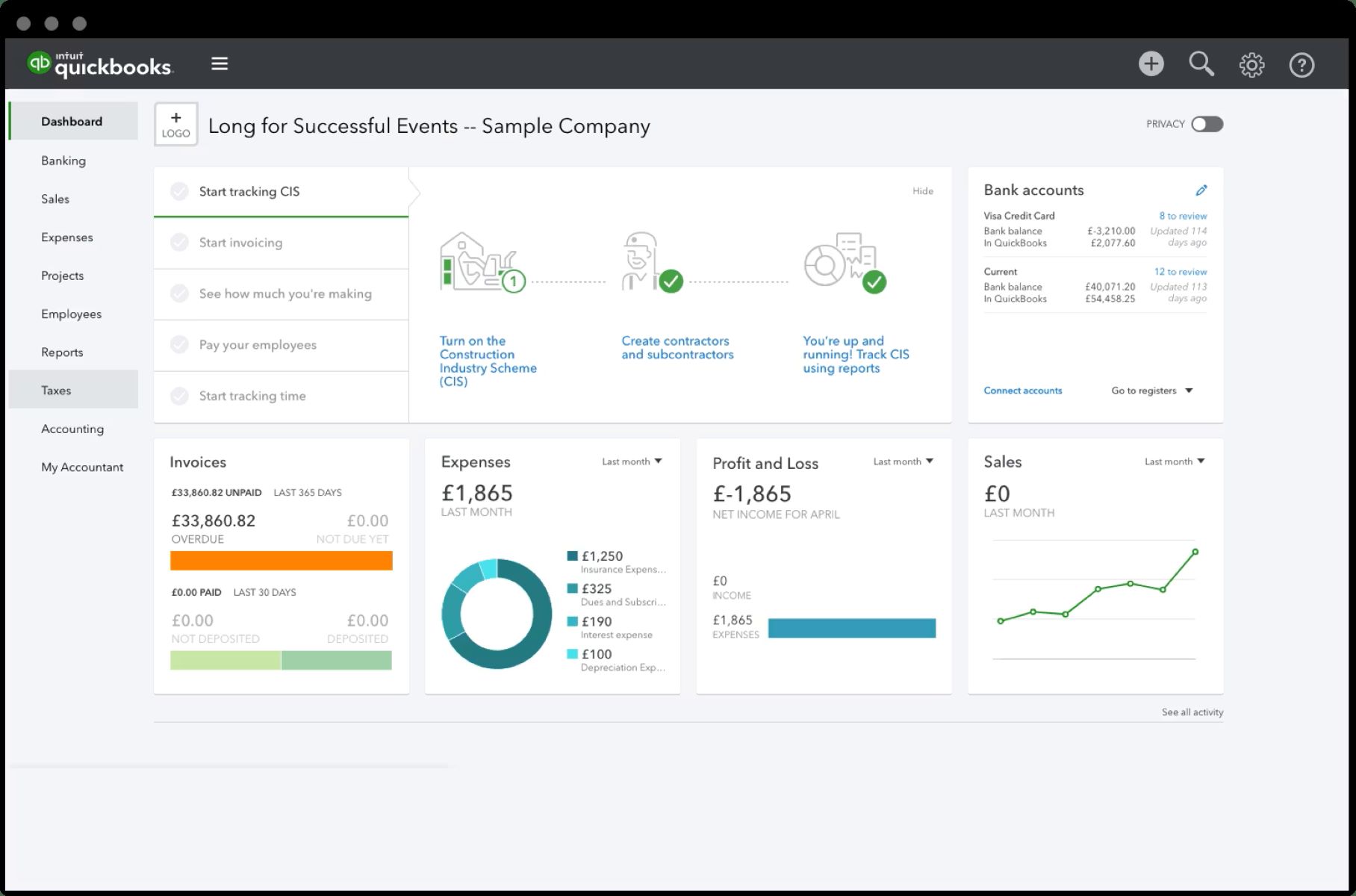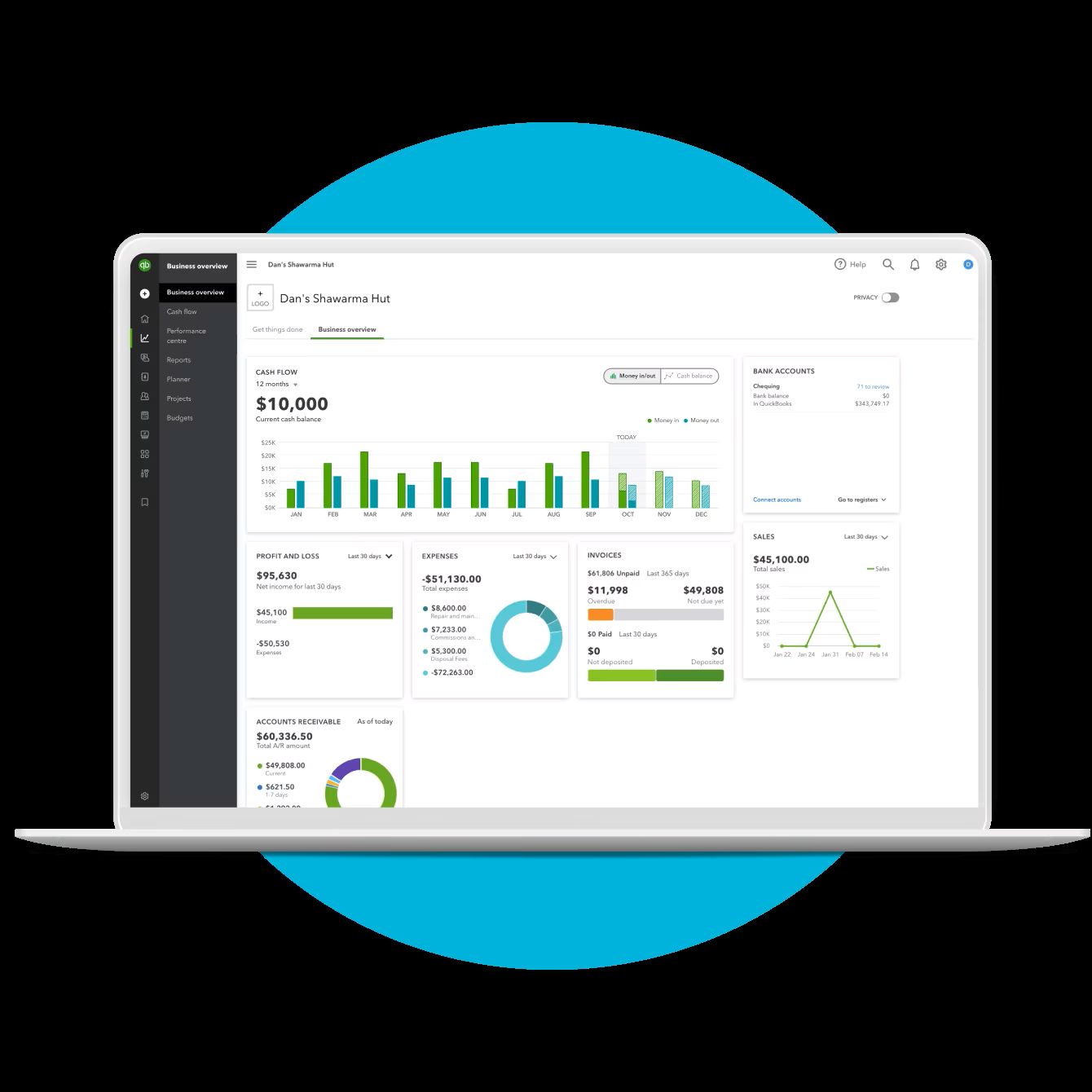Introduction
When it comes to managing payroll, QuickBooks Payroll is a popular choice for businesses of all sizes. With its user-friendly interface and robust features, QuickBooks Payroll simplifies the process of calculating and disbursing employee wages, managing tax deductions, and staying compliant with payroll regulations.
Understanding the cost of QuickBooks Payroll is essential for businesses looking to invest in this software. While QuickBooks offers different pricing options to cater to various needs and budgets, it’s important to consider the factors that influence the cost of this service.
In this article, we will explore the factors that determine the cost of QuickBooks Payroll and delve into the different pricing options available. We will also discuss additional costs and fees that may arise and compare QuickBooks Payroll with other payroll providers. Finally, we will provide some useful tips to help you save money when using QuickBooks Payroll.
Whether you’re a small business owner or a payroll manager for a large organization, understanding the cost of QuickBooks Payroll will enable you to make an informed decision and choose the pricing option that best suits your business needs. So let’s dive in and explore the world of QuickBooks Payroll costs and how they can impact your business finances.
Understanding QuickBooks Payroll
Before delving into the cost of QuickBooks Payroll, it’s important to have a clear understanding of what it entails. QuickBooks Payroll is a comprehensive payroll management software offered by Intuit, the same company behind the popular QuickBooks accounting software.
With QuickBooks Payroll, businesses can automate and streamline their payroll processes, saving time and reducing the risk of errors. The software offers features such as calculating employee wages, managing tax deductions, generating payroll reports, and facilitating direct employee deposits.
QuickBooks Payroll also helps businesses stay compliant with tax laws and regulations. It automatically calculates payroll taxes, provides tax forms, and helps with tax filings. This not only saves you time but also reduces the chances of costly penalties for non-compliance.
In addition to employee payroll, QuickBooks Payroll also allows for easy tracking of time and attendance. It offers the option to integrate with time clock systems or use a mobile app, making it simple to record employee working hours and accurately calculate wages.
One of the key advantages of QuickBooks Payroll is its seamless integration with QuickBooks accounting software. This integration ensures that payroll data seamlessly flows into your general ledger, enabling you to have a complete and accurate financial picture of your business.
QuickBooks Payroll offers different levels of service depending on your business needs, providing flexibility and scalability. Whether you have a small business with a handful of employees or a larger organization with a complex payroll structure, there is a QuickBooks Payroll option that can meet your requirements.
Now that we have gained a better understanding of what QuickBooks Payroll entails, let’s move on to exploring the factors that influence its cost.
Factors that Determine the Cost of QuickBooks Payroll
The cost of QuickBooks Payroll can vary depending on a few key factors. Understanding these factors will help you determine the appropriate pricing option for your business. Here are the primary factors that influence the cost of QuickBooks Payroll:
- Number of Employees: The number of employees you have is a significant determinant of the cost of QuickBooks Payroll. QuickBooks offers different pricing tiers based on the number of employees you need to process payroll for. As your workforce expands, you may need to upgrade to a higher-priced plan to accommodate the additional employees.
- Payroll Features: QuickBooks Payroll offers different levels of features and services, each at varying price points. The more advanced features you require, such as time tracking, employee benefits management, or tax form generation, the higher the cost of the payroll service.
- Pay Frequency: The frequency at which you pay your employees can impact the cost. If you have a bi-weekly or weekly pay schedule, the cost may be higher compared to a monthly pay schedule.
- Add-On Services: QuickBooks Payroll offers add-on services that can enhance your payroll management capabilities. These add-ons, such as Workers’ Compensation Insurance or TSheets time tracking, may have additional costs associated with them.
- Software Integration: If you already use QuickBooks accounting software, the cost of integrating QuickBooks Payroll with your existing system may be lower. However, if you have a different accounting software, there might be additional costs involved in setting up the integration.
Keep these factors in mind as you explore the pricing options for QuickBooks Payroll. By considering your specific business requirements and the number of employees you have, you can choose the most cost-effective plan that meets your needs.
Now that we understand the factors that influence the cost of QuickBooks Payroll, let’s explore the different pricing options available.
QuickBooks Payroll Pricing Options
QuickBooks Payroll offers different pricing options to cater to the needs and budgets of businesses of all sizes. Let’s take a closer look at the three main pricing options available:
- QuickBooks Payroll Core: This is the basic plan offered by QuickBooks Payroll. It includes essential payroll features such as calculating employee wages, managing tax deductions, and facilitating direct deposits. It also provides access to live support, tax forms, and 24-hour direct deposit. The cost of QuickBooks Payroll Core starts at $45 per month plus $4 per employee per month.
- QuickBooks Payroll Premium: The Premium plan offers additional features on top of the Core plan. These features include same-day direct deposit, expert setup review, and HR support center access. It also includes detailed reporting capabilities and the ability to generate W-2s for employees. The cost of QuickBooks Payroll Premium starts at $75 per month plus $8 per employee per month.
- QuickBooks Payroll Elite: The Elite plan is the most comprehensive and feature-rich option offered by QuickBooks Payroll. In addition to the features available in the Core and Premium plans, it includes personalized setup assistance and the option to add a dedicated payroll expert. The Elite plan also offers a tax penalty protection guarantee and faster payroll processing. The cost of QuickBooks Payroll Elite starts at $125 per month plus $10 per employee per month.
These pricing options allow businesses to choose the plan that best suits their specific needs and budget. Whether you are a small business with a limited number of employees or a larger organization with more complex payroll requirements, there is a pricing option available for you.
It’s important to note that the pricing mentioned above is based on a self-service payroll model. If you prefer to have Intuit handle payroll tax filings, you can opt for Intuit’s Full-Service Payroll, which is priced separately.
Now that we have explored the different pricing options for QuickBooks Payroll, let’s move on to discussing any additional costs and fees you may encounter.
QuickBooks Payroll Core
QuickBooks Payroll Core is the basic pricing option offered by QuickBooks Payroll. It provides essential payroll features to help businesses efficiently manage their payroll processes. Let’s take a closer look at what QuickBooks Payroll Core has to offer:
- Payroll Processing: With QuickBooks Payroll Core, you can easily calculate and process employee wages. The software automatically handles payroll taxes, ensuring accurate deductions and tax withholdings.
- Direct Deposit: QuickBooks Payroll Core enables you to offer direct deposit to your employees, providing them with a convenient and secure way to receive their wages. Employees can have funds deposited into multiple accounts, making it easy to manage their finances.
- Employee Self-Service Portal: The Core plan includes access to an employee self-service portal. Employees can view their pay stubs, check their vacation and sick leave balances, and update their personal information directly through the portal, reducing administrative tasks for HR departments.
- Tax Forms and Filing: QuickBooks Payroll Core generates and files tax forms such as W-2s for employees. The software takes care of tax form calculations and ensures compliance with tax reporting requirements, saving you time and reducing the chances of errors.
- Certified Payroll: If your business works on government-funded projects that require certified payroll reports, QuickBooks Payroll Core can help you generate and manage these reports easily.
- Employee Reports: The Core plan offers a variety of reports to help you track and analyze your payroll expenses. You can generate reports on employee wages, payroll taxes, and more, providing valuable insights into your labor costs.
The cost of QuickBooks Payroll Core starts at $45 per month plus $4 per employee per month. This pricing option is suitable for businesses that require basic payroll features without the need for advanced HR functionalities.
It’s important to note that QuickBooks Payroll Core is a self-service payroll option. If you prefer to have Intuit handle your payroll tax filings, you may want to consider Intuit’s Full-Service Payroll, which comes at a higher cost but offers additional benefits in terms of tax compliance and peace of mind.
Now that we have explored the features and pricing of QuickBooks Payroll Core, let’s move on to discussing the next pricing option, QuickBooks Payroll Premium.
QuickBooks Payroll Premium
QuickBooks Payroll Premium is a step up from the basic Core plan and offers additional features and functionalities to help businesses effectively manage their payroll processes. Let’s explore what QuickBooks Payroll Premium includes:
- All Core Features: QuickBooks Payroll Premium includes all the features available in the Core plan, such as payroll processing, direct deposit, employee self-service portal, tax forms and filing, certified payroll, and employee reports.
- Same-Day Direct Deposit: With QuickBooks Payroll Premium, you can offer same-day direct deposit to your employees, allowing them to access their wages faster. This feature can be particularly beneficial for businesses with tight payroll schedules or employees who rely on timely payments.
- HR Support Center Access: The Premium plan provides access to a comprehensive HR support center where you can find answers to common HR questions and access resources to help you navigate HR-related issues. This can be particularly helpful for small businesses that may not have dedicated HR departments.
- Expert Setup Review: QuickBooks Payroll Premium offers expert setup review, ensuring that your payroll settings are correctly configured. This helps minimize the chances of errors and ensures that your payroll processes comply with tax regulations.
- Enhanced Reporting: The Premium plan provides more detailed reporting capabilities, allowing you to generate customizable reports on key payroll metrics. You can analyze trends, track overtime, and gain insights into your payroll expenses to make informed business decisions.
The cost of QuickBooks Payroll Premium starts at $75 per month plus $8 per employee per month. This pricing option is ideal for businesses that require additional HR support, advanced reporting, and same-day direct deposit capabilities.
It’s important to note that QuickBooks Payroll Premium is a self-service payroll option. If you prefer a full-service payroll solution where Intuit handles your payroll tax filings, you may want to consider Intuit’s Full-Service Payroll, which provides additional benefits for a higher cost.
Now that we have explored the features and pricing of QuickBooks Payroll Premium, let’s move on to discussing the final pricing option, QuickBooks Payroll Elite.
QuickBooks Payroll Elite
QuickBooks Payroll Elite is the most comprehensive and feature-rich pricing option offered by QuickBooks Payroll. It is designed to meet the needs of businesses that require advanced payroll capabilities and personalized support. Let’s take a closer look at what QuickBooks Payroll Elite has to offer:
- All Core and Premium Features: QuickBooks Payroll Elite includes all the features available in the Core and Premium plans. This means you have access to payroll processing, direct deposit, employee self-service portal, tax forms and filing, certified payroll, same-day direct deposit, HR support center access, expert setup review, and enhanced reporting.
- Personalized Setup Assistance: With QuickBooks Payroll Elite, you receive personalized setup assistance to ensure that your payroll settings are correctly configured. A payroll expert will work with you to understand your business’s unique needs and help set up your payroll system according to your specifications.
- Dedicated Payroll Expert: The Elite plan allows you to add a dedicated payroll expert to your team. This payroll expert will be available to answer your payroll-related questions, provide guidance on compliance issues, and offer personalized support for your payroll needs.
- Tax Penalty Protection: QuickBooks Payroll Elite offers a tax penalty protection guarantee. This means that if you receive a payroll tax penalty due to an error made by the QuickBooks Payroll service, Intuit will pay the penalty and any resulting interest on your behalf.
- Faster Payroll Processing: The Elite plan ensures faster payroll processing, allowing you to submit your payroll and make changes up until 5:00 PM (PST) the day before payday. This gives you more flexibility and minimizes the potential for late or inaccurate payments.
The cost of QuickBooks Payroll Elite starts at $125 per month plus $10 per employee per month. This pricing option is suitable for businesses that require personalized support, dedicated payroll expertise, and advanced payroll features.
It’s important to note that QuickBooks Payroll Elite is a self-service payroll option. If you prefer a full-service payroll solution where Intuit handles your payroll tax filings, you may want to consider Intuit’s Full-Service Payroll, which provides additional benefits at a higher cost.
Now that we have explored the features and pricing of QuickBooks Payroll Elite, let’s move on to discussing any additional costs and fees that you may encounter with QuickBooks Payroll.
Additional Costs and Fees
While QuickBooks Payroll offers transparent pricing options, it’s important to be aware of any additional costs and fees that may be associated with using the service. Let’s explore some potential additional costs you may encounter with QuickBooks Payroll:
- Employee Add-Ons: The pricing for QuickBooks Payroll is based on the number of employees you have. If you hire additional employees, you will incur additional costs. Make sure to adjust your pricing plan accordingly to accommodate any changes to your workforce.
- Add-On Services: QuickBooks Payroll offers add-on services that can enhance your payroll management capabilities. These services, such as Workers’ Compensation Insurance or TSheets time tracking, come at an additional cost. Consider whether these add-ons are necessary for your business and factor in their costs when budgeting for QuickBooks Payroll.
- Software Integration: If you are using an accounting software other than QuickBooks, you may incur additional costs to integrate QuickBooks Payroll with your existing system. Be sure to check if any fees apply for the integration and consider these costs when evaluating the overall expense of using QuickBooks Payroll.
- State and Local Taxes: While QuickBooks Payroll handles federal tax calculations and filing, certain state and local taxes may not be included in the base pricing. Check with your local tax authorities to understand any additional tax obligations you may have and factor in these costs when determining the overall expense of using QuickBooks Payroll.
- Upgrade Fees: If you initially subscribe to a lower-tier plan and later need to upgrade to a higher-priced plan to accommodate the growth of your business, there may be upgrade fees associated with the plan change. Make sure to review the terms and conditions to understand any potential charges for plan upgrades.
It’s important to carefully review the pricing details and terms of service to ensure you have a clear understanding of all costs and fees associated with QuickBooks Payroll. By doing so, you can accurately budget for the software and avoid any unexpected expenses.
Now that we have explored the additional costs and fees, let’s move on to comparing QuickBooks Payroll with other payroll providers.
Comparing QuickBooks Payroll with other Payroll Providers
When considering payroll solutions for your business, it’s important to compare QuickBooks Payroll with other providers to determine which option best suits your needs. Here are some key factors to consider when comparing QuickBooks Payroll with other payroll providers:
- Features and Functionality: Evaluate the features and functionalities offered by different payroll providers. Consider whether they offer the essential payroll features you need, such as payroll processing, tax calculations, direct deposit, and employee self-service portals. Look for additional features that may be beneficial for your business, such as HR support, advanced reporting, or time tracking integration.
- Scalability: Consider whether the payroll provider can accommodate your business’s growth. If you anticipate expanding your workforce in the future, ensure that the provider can handle the increased number of employees without compromising on functionality or incurring excessive costs.
- Pricing: Compare the pricing structures of different payroll providers. Take into account the base cost, per employee costs, and any additional fees or add-ons that may apply. Assess the overall cost-effectiveness of each option and determine which provider offers the best value for your business.
- Customer Support: Evaluate the level of customer support offered by different payroll providers. Consider whether they provide reliable and responsive support channels, such as phone, email, or live chat. Look for reviews or testimonials to gauge the quality of customer support provided by each provider.
- Integration with Accounting Software: If you already use accounting software, check whether the payroll provider seamlessly integrates with your existing system. Integration can streamline processes and ensure accurate financial reporting by eliminating the need for manual data entry or duplicate entry.
- Compliance and Security: Payroll involves sensitive employee data and compliance with tax regulations. Assess the security measures and compliance protocols implemented by each payroll provider to ensure the protection of your data and compliance with legal requirements.
By comparing these factors across different payroll providers, you can make an informed decision about which solution best meets your business’s payroll needs. Consider your budget, business size, and specific requirements when evaluating the options. QuickBooks Payroll is a popular choice due to its user-friendly interface, integration with QuickBooks accounting software, and flexibility in pricing options.
Now that we have compared QuickBooks Payroll with other providers, let’s move on to discussing tips to save money on QuickBooks Payroll.
Tips to Save Money on QuickBooks Payroll
Managing payroll costs is important for businesses of all sizes. Here are some tips to help you save money when using QuickBooks Payroll:
- Choose the Right Pricing Tier: Carefully assess the number of employees you have and select the appropriate pricing tier for your business. Avoid overpaying for features or employee caps that you don’t need.
- Regularly Review Employee Count: Keep track of changes in your workforce and adjust your pricing plan accordingly. Make sure you are only paying for the exact number of employees you have.
- Consider Alternative Pay Frequencies: If your business can accommodate it, consider changing to a less frequent pay schedule, such as bi-weekly or monthly, rather than a weekly pay schedule. This can help reduce costs associated with payroll administration.
- Take Advantage of Employee Self-Service: Encourage your employees to utilize the self-service portal provided by QuickBooks Payroll. This enables them to access their pay stubs, update personal information, and view vacation balances, reducing the need for HR administrative tasks.
- Utilize Automated Time Tracking: If you have hourly employees, consider integrating automated time tracking systems with QuickBooks Payroll. This eliminates the need for manual entry and reduces the chance of timekeeping errors, resulting in accurate payroll calculations.
- Review and Optimize Payroll Processes: Regularly evaluate your payroll processes and identify areas where you can streamline or automate tasks. By optimizing your payroll workflows, you can save time and reduce the risk of errors that may incur additional costs.
- Maximize Software Integration: If you are already using QuickBooks accounting software, take full advantage of the integration with QuickBooks Payroll. This eliminates the need for duplicate data entry and ensures accurate financial reporting, saving time and reducing the chance of errors.
- Monitor Tax Updates: Stay informed about changes in tax laws and regulations. By staying updated, you can ensure compliance and avoid potential penalties or fees associated with non-compliance.
- Seek Professional Advice: If you find payroll management challenging or complex, consider consulting with a payroll professional or tax advisor. They can provide guidance on maximizing the use of QuickBooks Payroll, identifying potential savings, and ensuring compliance with payroll regulations.
Implementing these tips can help you maximize the value of QuickBooks Payroll while minimizing costs. By carefully managing your payroll processes and utilizing the features and tools available, you can save money and focus more on growing your business.
Now that we have discussed tips to save money on QuickBooks Payroll, let’s wrap up this article.
Conclusion
Managing payroll is a critical aspect of running a successful business, and QuickBooks Payroll offers a range of features and pricing options to meet the unique needs of businesses of all sizes. By understanding the factors that determine the cost of QuickBooks Payroll and exploring the various pricing options available, you can choose a plan that fits your budget and meets your payroll requirements.
Whether you opt for the Core plan with essential payroll features, the Premium plan with additional HR support, or the Elite plan with personalized setup assistance and dedicated payroll expertise, QuickBooks Payroll offers flexibility and scalability to adapt to your business’s needs.
Remember to consider factors such as the number of employees, desired features, pay frequencies, and any add-on services or software integration needs when making your decision. Additionally, by implementing tips to save money, such as choosing the right pricing tier, optimizing payroll processes, and utilizing employee self-service capabilities, you can further maximize the value of QuickBooks Payroll and reduce unnecessary costs.
When comparing QuickBooks Payroll with other payroll providers, carefully evaluate the features, pricing, scalability, customer support, and integration options to ensure you select the best solution for your business. While QuickBooks Payroll offers comprehensive functionality, it’s crucial to assess how it aligns with your specific needs and goals.
In conclusion, understanding the cost of QuickBooks Payroll and making an informed decision can streamline your payroll management, save you time and money, and ensure compliance with payroll tax regulations. By leveraging the features, flexibility, and scalability of QuickBooks Payroll, you can focus on growing your business while effectively managing your payroll processes.







